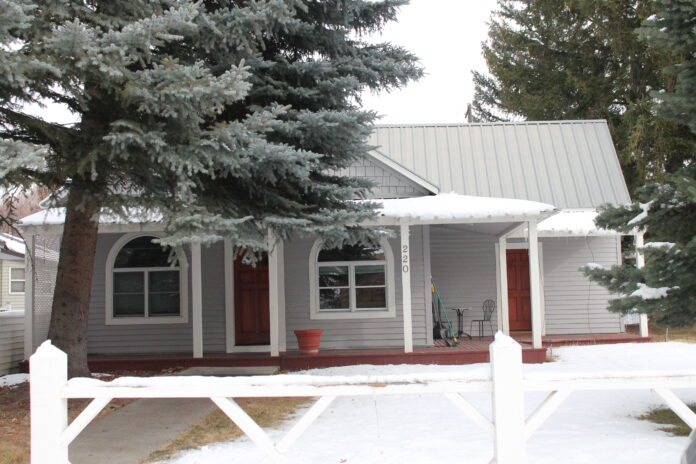By Hayden Seder

Executive Director
Men’s Second Chance Living
A men’s-only sober living house in Hailey has several current residents with more in line to join them in the coming weeks.
Before Men’s Second Chance Living opened on Nov. 5, becoming the first of its kind in the Valley, people seeking such living arrangements had to go to Twin Falls or Boise.
Sonya Wilander, who helped spearhead the project, was volunteering in a jail diversion program for addicts coming through the 5th District drug court in Blaine County when “I realized we have a gap in services that we offer in this community.”
According to the Substance Abuse and Mental Health Services Administration, nearly two-thirds of all drug user relapses take place within the first six months of the recovery process.
The service provided by Men’s Second Chance Living is targeting those men fresh out of treatment or jail on drug-related charges. Recovering substance abusers entering the real world without social support and returning to situations and people that once fostered their drug habit puts them at a much higher risk of relapse.
“Men in rehab get to live there with people also in recovery and have therapy all day, but then those men come out and are exposed to the world,” Wilander said. “The Men’s Second Chance Living home just gives men support for a little bit longer.”
The house, which can hold up to eight occupants, will be run by the residents, who will pay a modest flat rental fee. The men will mow the lawn, do the dishes, plow snow, pay for their own groceries and generally care for the house as theirs. Providing the men with structure and responsibilities helps the residents develop a stronger sense of self-confidence, self-reliance and accountability.
The residents will share four bedrooms and, in addition to their household duties, be required to attend AA/NA meetings, attend weekly house meetings, comply with the terms of their release or probation, participate in two therapy groups and one individual counseling session a week, and take life-skills classes provided to them by The Advocates with the goal of becoming self-supportive. Patients will also have access to recreational opportunities as well as a variety of treatments, including EMDR (eye movement desensitization and reprocessing), designed to alleviate the distress of traumatic memories.
A part-time house manager will oversee day-to-day operations of the house with the support of a part-time live-in assistant.
Wildander partnered with The Advocates to gain its support as a fiscal sponsor, which allowed Men’s Second Chance Living to collect donations while awaiting certification as a 501(c)(3) nonprofit.
Already, about $200,000 has been raised to assist in operations of the house. The organization 100 Men Who Care donated $9,500 to furnish the home while a donor volunteered to purchase the home and lease it to the program for just $1 a year.
The home will accept men from the Wood River Valley, as well as those from other counties in Idaho’s 5th District, including Camas, Cassia, Gooding, Jerome, Lincoln, Minidoka and Twin Falls.
Space depending, people from outside these areas may be accepted as well.
Wilander anticipates that the house will contribute to a reduction in local crime, a steady stream of referrals to the home from Blaine County Probation Department and Drug Court and the reintegration of Men’s Second Chance Living residents into their families and the community.
“We want to help these men get back on their feet, be able to get a job and save some money so that in six to twelve months they feel strong enough to go out on their own,” Wilander said.
Sober living homes are not government regulated so to track the effectiveness of Men’s Second Chance Living, residents will have detailed records of their stay in the home tracked as well as their progress afterwards in terms of family relations, employment, incarceration, return to family life, and relapse. Residents will complete an exit interview when leaving the home where they will provide contact information so that the home can keep informed of their progress.
For more information on Men’s Second Chance Living, visit msclhouse.org.



